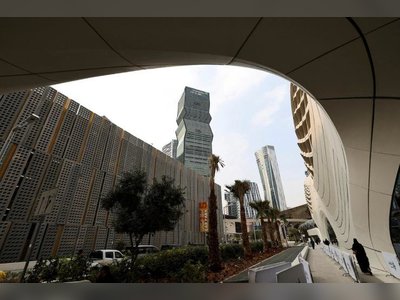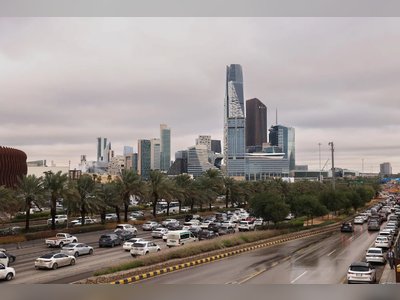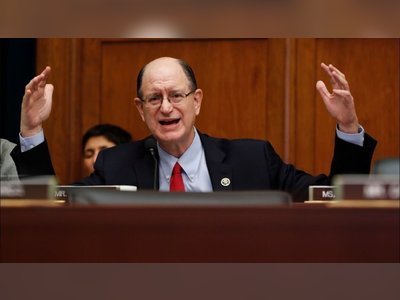
Here’s where the next financial crisis starts
It couldn't happen again. Could it?
When banks blew up the global economy in 2008, regulators from Brussels to Washington scrambled to put up the scaffolding. That was all well and good, but what about the parts of the financial system that were left behind? A few ripples under the surface are now causing insiders to break out in a cold sweat.
Alarm bells are ringing about so-called shadow banks or nonbanks — not banks in the traditional sense at all, but structures such as investment funds, insurers, private equity, pension and hedge funds. Not only did they escape some of the stricter rules imposed during the last crisis but they also benefited by taking on a lot of the risks from the ordinary bank sector.
But the post-crisis good times are coming to an end. Central banks are increasing interest rates in an effort to tackle soaring inflation meaning the era of cheap money is over.
And regulators fear the vulnerabilities that have built up over the past few years are ready to explode and send shockwaves across the world.
Ominous playbook
The dwindling supply of money in the shadow banking system means "you see some of the issues that are there — being exposed," warned Verena Ross, the chief of the EU’s securities regulator, in an exclusive interview with POLITICO.
It's not difficult to see what might happen, and how. So far a series of mini-crises — relatively small and self-contained — means there's a clear and ominous playbook for how a problem in shadow banking starts, and then spreads:
— The prime example is the turmoil that hit U.K. pension funds in the fall, with the Bank of England having to step in to buy bonds to calm markets.
— Similarly, volatile price swings in futures markets sparked by Russia’s invasion of Ukraine created a cash crunch at European energy companies.
— At the start of the pandemic, a “dash for cash” by companies created problems in short-term debt markets — again requiring a central bank intervention.
— And in 2021, the collapse of the Archegos hedge fund spread losses on large hidden bets to banks.
The same themes run through all those wobbles: short-term cash pressures, risky bets and domino effects.
Further risks
“What you see in all these [peripheral] episodes is that there’s a common issue around … liquidity, leverage and interconnectedness," Ross said. And these are "common indicators of issues that we need to look at, to identify where potential further risks might be coming from."
It's not just the securities regulator. Other watchdogs are sounding similar warnings about how shadow banks could accentuate a crisis.
A change in financial market conditions could lead to short-term cash stress and trigger forced selling, Jérôme Reboul, managing director of the regulatory policy and international affairs directorate at the French Autorité des Marchés Financiers (AMF), said.
That could create a “self-reinforcing mechanism” where selling drives prices down further, creating more pressure on investors — or more cash demands through margin calls on derivatives positions. “That’s the episode that everybody has in mind,” he said.
But while almost everyone agrees the shadow banking sector might be an accident waiting to happen, there isn't a clear or agreed plan for how to stop it.
What to do
Global authorities want to make shadow banks more resilient to prevent a cash crunch mutating into a full-blown crisis. Central bankers are pushing for action because they might otherwise have to pump in public money to calm things down — at a time when they’re eager to do the opposite: step back from markets.
There’s a divide over how far to go. While central banks want to transfer similar safeguards already in existence in the banking system — such as cash buffers — over to the shadow banking sector, markets regulators prefer more bespoke options.
As Ross said, it's not the case that one size fits all.
“It is to my mind not necessarily the right approach to just say because we have measure X in the banking sector or measure Y in the insurance sector, you should have the same necessarily in another sector," she said. "You need to look at what actually makes sense in the individual area and sector that you are dealing with."
Still, there is common ground over the need to firm up what tools are available in a crisis — like penalizing investors rushing to get their cash back quickly — and preferably before something else goes pop.
We're not banks
For its part, the fund industry is fiercely resistant to any reforms that would force them to hold buffers like banks, and is wary of being lumped together with other parts of the shadow bank sector.
But even it recognizes the problem.
“Do I think that there’s a risk of accidents in the nonbank sector broadly? I would say, yes, I do. Any time you have such a lengthy period of stimulative interest rates and stimulative fiscal policy, and then you come out of it, you’re going to see that,” said Michael Pedroni, chief global affairs officer at ICI, which represents the global fund industry.
In the EU, there’s a debate underway over how prescriptive to be on the tools available in a key piece of fund legislation, and to improve data and reporting to the authorities.
“We need to get our house in order in the EU,” said Ross. "On the other hand, we need to be conscious that we live in a global financial system.”
Comments












